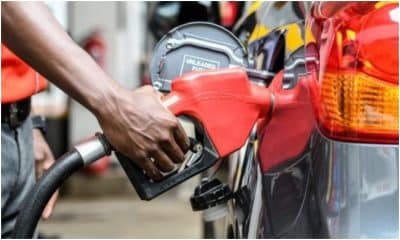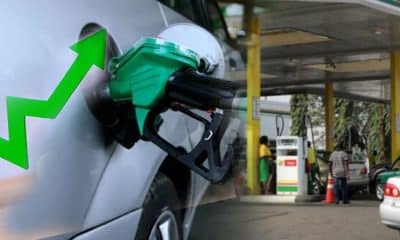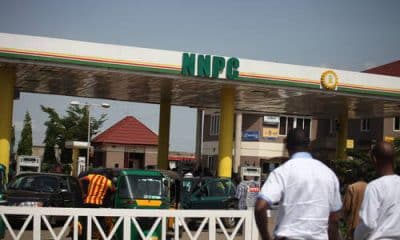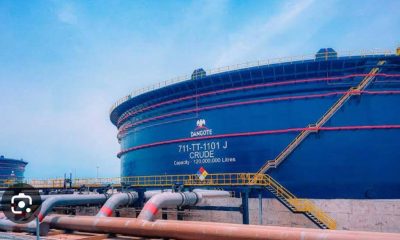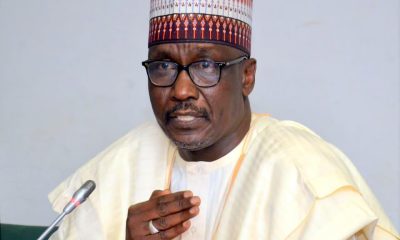Nigeria News
Oil Marketers React Differently To Dangote Refinery’s Advance Payment Requirement
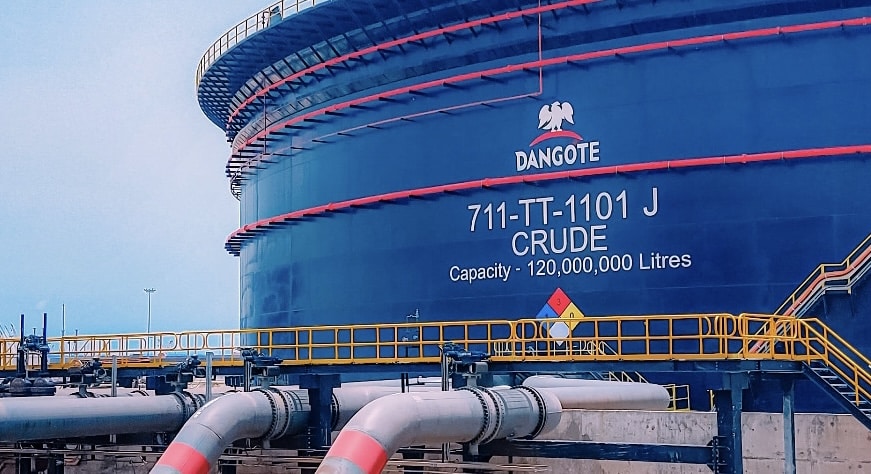
Oil marketers have expressed mixed reactions to the recent requirement by the Dangote Petroleum Refinery that dealers must make advance payments before accessing products from its Lekki facility.
Naija News learnt that the announcement was made during a high-level stakeholder meeting chaired by NNPC Group CEO Mele Kyari and attended by representatives from the Major Oil Marketers Association of Nigeria, Depot and Petroleum Products Marketers Association of Nigeria, and key players from companies like 11 Plc, Matrix, and AA Rano.
Sources from the meeting revealed that Dangote required advance payments from marketers, departing from the usual system where payments are made after product delivery to depots.
The source said, “Paying upfront significantly increases financial pressure on marketers, particularly those with limited capital. For decades, we’ve operated on a post-delivery payment model, which aligns better with our liquidity cycles.”
This policy has sparked debate among downstream operators, with ongoing negotiations aimed at resolving the disagreements.
Some marketers expressed concerns over the financial burden this system may impose, particularly on smaller businesses.
Others defended the policy, citing it as essential for the refinery’s smooth operation and a way to minimize risks from delayed payments.
In an interview with The PUNCH, the Independent Petroleum Marketers Association of Nigeria National Publicity Secretary, Chinedu Ukadike, acknowledged the advance payment directive and described it as reasonable for a newly established refinery.
He said, “The Dangote refinery is just newly established and they are building a customer base for those who can offtake high volumes.
“Independent marketers are ready to offtake higher volumes but because of some of the largesse we have been receiving before, we also want somewhere we can be getting the products and maybe pay later.
“Dangote is demanding advance payment but since it’s just an expanding business. I know that with time when we create a relationship with Dangote, we will be able to get products on credit.”
In response to the situation, he explained that a special-purpose vehicle has been set up to facilitate financing for small, medium, and large-scale off-takers.
He added, “Because of the nature of independent marketers, we are now warehousing small, medium, and higher volume off-takers.
“So that is why we were able to assemble our marketers and establish special purpose vehicles to be able to drive in all the marketers to at least get petroleum products from the new arrangement.
“We have agreed with the advanced payments, and we are making necessary contacts with financial stakeholders and some of our marketers to ensure that we can get products. I believe that with time, we will start getting concessions and other minimal support in terms of logistics.”
Another marketer, speaking anonymously, revealed that discussions on the payment terms are ongoing and yet to be finalized.
“Those are subject to private confidential businesses. Everybody knows that if you want to buy the product, you have to pay, but we can’t discuss that now. Those are still part of the issues that we need to thrash in our discussions and things we want to talk about but not now. Let us conclude the negotiations on all sides,” the official said.
President of the Petroleum Products Retail Outlet Owners Association of Nigeria (PETROAN), Dr. Billy Harry, highlighted that stakeholders, including the NNPCL, have agreed to end petrol imports, focusing instead on supporting the Dangote Refinery.
He noted that marketers are working to raise funds despite challenges like bank charges.
“At least we have gotten to the point where we have agreed that we are no longer importing fuel. We have agreed that we are not importing. Every other thing that would make the business stable is what PETROAN is after and pursuing. We encourage all stakeholders and Nigerians to be patient with what NNPCL, Dangote, and the NMDPRA are doing.
“We have been getting products on advance payment so it’s not entirely new. It has always been like that. And that was why we asked for ₦100 billion intervention funds. That would help in cushioning the effect of bank charges.
“Today, most of us are working assiduously to get money from banks that won’t charge us for transactions and different things. That’s where we are. We are positive the discussion will end well,” Harry concluded.

